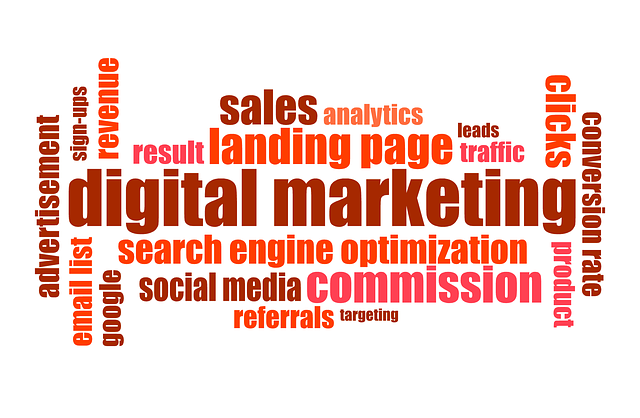The Marketing Leadership Summit highlights crucial trends shaping the future of marketing:
Tech-driven innovation: AI and VR are revolutionizing marketing through personalized experiences, predictive insights, and immersive content.
Data-centric approach: Leveraging data analytics empowers targeted campaigns, consumer understanding, and informed strategic decisions.
Authentic connections: Influencer marketing and brand storytelling build transparency and genuine relationships with consumers.
Emotional engagement: Creating memorable customer experiences through personalized interactions fosters loyalty.
Sustainability focus: Businesses prioritize ethical practices, social responsibility, and eco-friendly initiatives to appeal to conscious consumers.
Global expansion: Marketing strategies adapt to diverse cultural preferences worldwide for global competitiveness.
* Precision marketing: Advanced analytics tools track consumer behavior for targeted campaigns, optimized ROI, and predictive modeling.
“Welcome to the Marketing Leadership Summit, where we explore the future of marketing in a dynamic digital age. In this comprehensive guide, we navigate the ever-evolving landscape, uncovering key trends and predictions that will shape the industry. From technology’s transformative impact – including AI and VR – to data-driven decision-making, content strategy reinvention, and the power of emotional customer experiences, we delve into essential strategies for success. Discover how global marketing leaders are embracing sustainability, cultural sensitivity, and advanced analytics to thrive in today’s competitive market.”
Shaping the Marketing Landscape: Key Trends and Predictions

The Marketing landscape is evolving rapidly, driven by technological advancements and shifting consumer behaviors. At the forefront of this transformation are data analytics and artificial intelligence, which enable hyper-personalized marketing strategies and predictive insights. As discussed at the Marketing Leadership Summit, brands are increasingly leveraging AI to optimize ad campaigns, understand customer preferences better, and create dynamic content tailored to individual needs.
Another significant trend is the rise of influencer marketing and authentic brand storytelling. Consumers today value transparency and genuine connections with brands. Marketers are responding by forging partnerships with influencers who can resonate with their target audiences. This shift towards authenticity and trust-based relationships promises to redefine how brands interact with their customers in the future, as highlighted by insights shared at the Marketing Leadership Summit.
The Role of Technology: AI, VR, and Personalized Experiences

The future of marketing is intricately linked with technological advancements, reshaping how businesses connect with their audiences. Artificial Intelligence (AI) has emerged as a powerful tool for marketers, enabling data-driven insights and personalized experiences. By analyzing vast consumer datasets, AI algorithms can predict preferences, tailor content, and optimize campaigns, ensuring every customer interaction feels unique. This level of personalization was once unimaginable but is now a key focus at the Marketing Leadership Summit, where industry experts explore AI’s potential to enhance brand engagement.
Virtual Reality (VR) is another game-changer, offering immersive experiences that transcend traditional marketing boundaries. Marketers can create virtual worlds, allowing consumers to interact with products and services in novel ways. This innovative approach, showcased at various Marketing Leadership Summits, not only captivates audiences but also provides valuable data on consumer behavior within these digital environments. The fusion of AI and VR promises a future where marketing becomes an engaging, interactive art, fostering deeper connections between brands and their customers.
Data-Driven Decisions: Unlocking Consumer Insights

In today’s data-rich environment, marketing strategies are increasingly guided by data-driven decisions. The Marketing Leadership Summit has consistently emphasized the importance of leveraging advanced analytics and consumer insights to stay ahead in the competitive market. By extracting valuable information from vast datasets, marketers can gain a profound understanding of their target audience, enabling them to create personalized campaigns that resonate deeply with individual preferences and behaviors.
This shift towards data-driven marketing empowers businesses to make informed choices based on tangible evidence rather than relying solely on intuition or traditional marketing norms. As the Marketing Leadership Summit has highlighted, such insights can reveal hidden consumer trends, predict market shifts, and optimize marketing spend, ultimately driving higher conversion rates and fostering stronger brand loyalty.
Marketing Leadership: Strategies for Success in a Dynamic Market

In today’s dynamic market, effective marketing leadership is more crucial than ever. The Marketing Leadership Summit serves as a pivotal platform for industry experts to exchange insights and strategies, navigating the ever-changing landscape with confidence. By fostering collaboration and knowledge-sharing, summit participants gain valuable tools to stay ahead of trends, adapt to new consumer behaviors, and leverage emerging technologies like artificial intelligence and data analytics.
Successful marketing leaders understand that staying agile and forward-thinking is essential. They embrace digital transformation, ensuring their strategies resonate across multiple channels and touchpoints. Through innovative approaches, they create engaging experiences for customers, build strong brand identities, and drive measurable results. The Marketing Leadership Summit facilitates this learning exchange, empowering attendees to return to their organizations equipped with actionable ideas and best practices tailored to a dynamic market.
Content is King: Evolving Content Strategies for Engagement

In today’s digital age, where information is abundant and attention spans are limited, content has become the cornerstone of successful marketing strategies. The Marketing Leadership Summit consistently emphasizes this fact, underscoring the need for brands to create compelling and relevant content that resonates with their target audiences. To stay ahead in the competitive market landscape, businesses must evolve their content strategies to foster genuine engagement and build lasting connections with consumers.
This evolution involves shifting from mere product promotion towards storytelling that educates, entertains, and inspires. Marketers should focus on creating diverse content formats, leveraging video, podcasts, interactive infographics, and immersive experiences. By understanding consumer preferences and behaviors, brands can tailor their content to address specific needs and interests, ensuring it stays relevant and captures the attention of audiences across various channels.
Customer Experience: Creating Emotional Connections

In today’s digital age, where consumers are bombarded with countless marketing messages daily, creating a memorable and emotional customer experience has become paramount for businesses aiming to stand out at the Marketing Leadership Summit or beyond. Going beyond traditional transaction-focused interactions, brands must now weave narratives that resonate with their target audiences on a deeper level. This involves understanding consumer psychology, leveraging data analytics to personalize experiences, and crafting touchpoints that spark emotions and foster brand loyalty.
By prioritizing customer experience as a strategic pillar, businesses can elevate themselves from mere sellers to trusted companions. This approach encourages word-of-mouth marketing, fosters online communities, and ultimately drives sustainable growth by creating a loyal customer base. As the Marketing Leadership Summit highlights innovative trends and best practices, focusing on emotional connections ensures that brands remain relevant, memorable, and desirable in an ever-evolving market landscape.
Sustainable Marketing: Ethical Practices and Social Responsibility

The future of marketing is increasingly defined by a focus on sustainability and ethical practices, as businesses recognize their social responsibility. This shift has gained significant traction, especially among younger consumers who prioritize brands with a strong environmental and social conscience. At the Marketing Leadership Summit, experts often emphasize the need for transparency and authenticity in marketing strategies. Companies are moving away from one-size-fits-all approaches and embracing personalized, data-driven methods to engage their audiences more effectively.
Sustainable marketing goes beyond greenwashing; it involves integrating eco-friendly practices into every aspect of a brand’s existence. This includes using sustainable materials for product packaging, reducing waste, and adopting renewable energy sources. Moreover, businesses are leveraging their platforms to advocate for social causes, whether it’s promoting diversity and inclusion or supporting local communities. By embracing these ethical practices, marketing leaders not only contribute to a healthier planet and society but also foster long-term brand loyalty and positive consumer sentiment.
Global Reach: Expanding Markets and Cultural Sensitivity

In today’s interconnected world, marketing has evolved beyond geographical boundaries, allowing businesses to tap into global markets like never before. The Marketing Leadership Summit often highlights this trend, emphasizing the importance of strategic expansion. Companies that wish to thrive in the future must adapt to this global reach, ensuring their marketing efforts resonate with diverse audiences worldwide. This shift demands a deeper understanding of cultural nuances and local preferences.
Marketing professionals are increasingly recognizing the value of cultural sensitivity, tailoring strategies to suit specific regions while maintaining a unified brand image. By embracing this approach, businesses can avoid potential pitfalls associated with missteps in foreign markets and instead foster meaningful connections with customers across borders.
Measuring Success: Advanced Analytics and ROI

In today’s digital age, marketing strategies are more data-driven than ever before, and measuring success has evolved significantly. Advanced analytics tools enable marketers to track and analyze vast amounts of consumer behavior data in real-time. This shift towards data-centric decision-making is a key focus at the Marketing Leadership Summit, where industry experts gather to exchange insights on the latest trends. Marketers can now go beyond traditional metrics and pinpoint precise ROI (Return on Investment) by attributing conversions to specific marketing channels and campaigns.
This level of precision allows for more effective budget allocation and strategic adjustments. By understanding what works and what doesn’t, companies can optimize their marketing efforts, ensuring every dollar spent contributes to tangible results. Advanced analytics also facilitates predictive modeling, enabling marketers to anticipate consumer trends and stay ahead of the competition, a crucial aspect in staying relevant and successful in an ever-changing marketing landscape.
